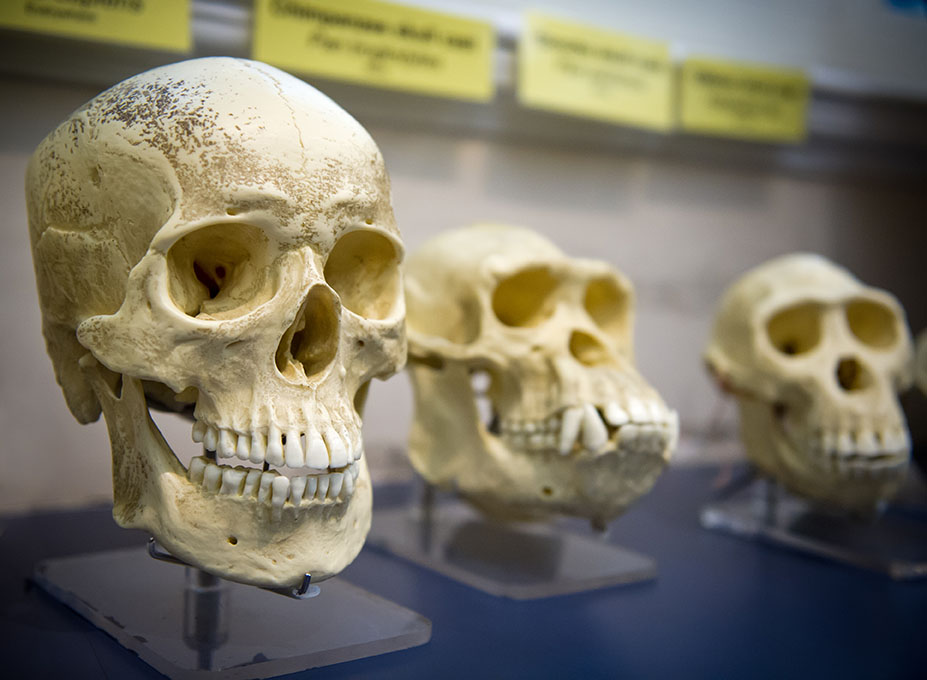

Homo sapiens is the scientific name for humans. It means "wise man" in Latin. Humans are the only living species in the genus Homo.
Humans are highly evolved creatures. We have a large brain, bipedal locomotion, and opposable thumbs. These features allow us to manipulate our environment and to adapt to a wide range of habitats.
Humans are also very intelligent creatures. We have the ability to learn, to reason, and to solve problems. We are also capable of complex emotions, such as love, hate, and fear.
Humans are also very social creatures. We live in groups and cooperate with each other to survive and thrive. We have developed complex cultures and societies that have shaped the world around us.
Humans are the most successful species on Earth. We have spread to every continent and have adapted to a wide range of environments. We are also the only species that has mastered fire, tools, and language.
Humans have a long and complex history. We have evolved from earlier hominid species, such as Homo erectus and Homo neanderthalensis. We have also developed a wide range of technologies, from simple tools to complex machines.
Humans are facing a number of challenges in the 21st century, such as climate change, overpopulation, and environmental degradation. However, we are also a resilient species and we have the potential to overcome these challenges.
Homo sapiens are the only species of hominids that are still alive today.

There are no different forms of the word "homo sapiens". It is a binomial nomenclature, which is a two-part scientific name for a species. The first part, "homo", is the genus name, and the second part, "sapiens", is the species name.
The word "homo sapiens" comes from the Latin words "homo", meaning "man", and "sapiens", meaning "wise". It was first used in the 18th century to describe the species of humans that we belong to.
The word "homo sapiens" is now used to refer to any member of the human species. It is often used in contrast to other species of hominids, such as Neanderthals and Denisovans.
What is a homo sapien?
Question:
Explain the classification of Homo sapiens within the animal kingdom and discuss the unique characteristics that distinguish humans from other species, highlighting the role of advanced cognition and culture in shaping human evolution and development.
Answer:
Homo sapiens, commonly known as modern humans, are classified within the animal kingdom as a species of primates, specifically belonging to the family Hominidae. This classification places humans alongside other great apes, such as chimpanzees, gorillas, and orangutans.
What sets Homo sapiens apart from other species is a combination of unique characteristics. Advanced cognition, including complex problem-solving abilities, reasoning, and abstract thinking, has been a driving force in human evolution. This cognitive capacity has allowed humans to develop advanced tools, technology, and intricate social structures.
Furthermore, culture plays a significant role in distinguishing humans. Humans possess the ability to create and transmit knowledge, beliefs, and practices across generations. This cultural evolution has enabled the development of language, art, music, and diverse forms of expression.
The emergence of advanced cognition and culture has influenced human physiology as well. Changes in brain structure, along with the development of bipedalism and the ability to manipulate objects with precision, have been critical in shaping the human form.
In conclusion, Homo sapiens are classified as primates within the animal kingdom, sharing ancestry with other great apes. Unique characteristics, including advanced cognition and culture, have set humans on a distinctive evolutionary path, leading to the development of complex societies, technological advancements, and the remarkable diversity of human achievements.
Address
Developing Experts Limited
Exchange Street Buildings
35-37 Exchange Street
Norwich
NR2 1DP
UK
Phone
01603 273515
Email
hello@developingexperts.com
Copyright 2025 Developing Experts, All rights reserved.